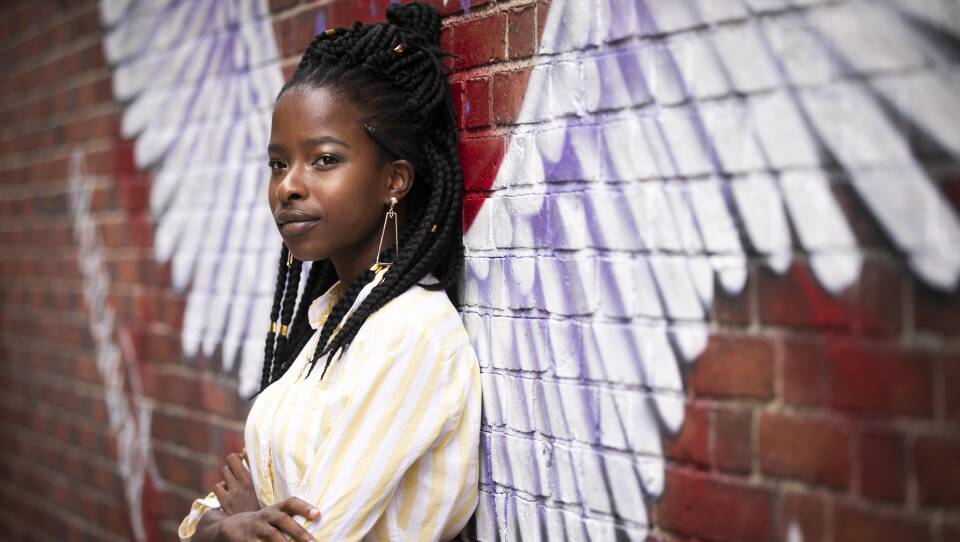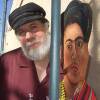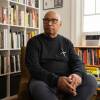On Jan. 20, 2021, Amanda Gorman made history as the nation’s youngest inaugural poet when she read “The Hill We Climb” at President Joe Biden’s swearing-in ceremony.
In addition to breaking that barrier, the 22-year-old was charged with what seemed like a Sisyphean task: to write a poem that would inspire a sense of togetherness after the nation’s Capitol was literally attacked.
In an interview with the New York Times , Gorman said seeing the attacks on Jan. 6 compelled her to write something that would not gloss over the harsh truths America needed to come to terms with. She also knew that her words would have to serve another purpose, “what I really aspire to do in the poem is to be able to use my words to envision a way in which our country can still come together and can still heal.”
This wasn’t the first time Gorman made history. In 2017, at the age of 19, she became the first person to be named National Youth Poet Laureate .
As we wrap up our National Poetry Month series profiling local poets, we’re focusing on Amanda Gorman.
Open Studio host Jared Bowen talked to Gorman in 2020 . At the time, she was on the cusp of graduating from Harvard University. While the pandemic upended the traditional ceremony, Gorman said nothing could diminish what this moment meant for her.
“I bring up the fact that I'm the descendant of slaves. Moreover, I’m the descendant of a slave named Amanda," she said. "So that type of trajectory from my family being property to, generations later, me graduating from a place like Harvard — that speaks to such a larger legacy than myself.”
Thinking beyond herself and connecting with something larger is central to Gorman’s poetry.
Gorman said being creative amid the pandemic was a struggle, but that dark experiences hearken back to what else humankind has been through and offer an opportunity to shine a light on what truly matters.
”I was thinking about Martin Luther King writing from a Birmingham jail a letter on racial injustice. I was thinking about Nelson Mandela writing and reading while he was in jail for decades. I was thinking of Anne Frank writing while she was hiding from Nazis," she said. "All that is to say I was thinking about what do humans do when they are scared and alone and isolated from the rest of the world? Often it is truth-telling, it's telling stories that matter, no matter what."
At the beginning of the pandemic lockdown, Gorman wrote "The Miracle of Morning" in response.
“I decided to try to write this poem as a type of reminder of all the things that we have to be grateful and hopeful for," she reflected. "Really, the inspiration for the poem came from watching people in their daily lives. I am so fortunate that I have a window in my room, so I was watching families take walks, I was seeing dogs outside, I was seeing grandmothers."
Telling stories comes naturally to Gorman.
She grew up with a speech impediment. Gorman said writing from a young age helped her communicate her thoughts and feelings, and in turn, her poetry helped with her speech.
"When I was younger, what I used to do is I would eliminate words that I couldn't say, and try to find synonyms," she said, adding how she later challenged herself to keep those difficult words and practice the sounds as she would perform her poetry.
Gorman said she always knew she wanted to be a writer. But her mother, who is an English teacher, knew that the journey for a writer could be hard.
“My mom's been incredibly supportive of me,” Gorman said, “but when she looked in my eyes and saw that I was very serious and this was the career that I wanted for myself, she knew that the journey of a writer can be hard, it can be lonely, it can be strenuous, and you’re not always compensated in the ways that you should be.”
With that history in mind, Gorman said it has been fulfulling to be participating in the collective reimagining of what it means to be a poet and how to interact with the modern world.
In addition to the hard work that comes with writing, Gorman also realizes the responsibility that she has as the first National Youth Poet Laureate.
“There’s this feeling of pressure because my naming was a provocation in itself in that I’m Black, I'm female, I'm young,“ she said.
Gorman said this intersectionality of her identity took her role as National Poet Laureate far beyond the status quo.
“I think I had a sense of duty, of proving that this title is worthwhile in giving youth voices, and especially the marginalized voices," she said.






